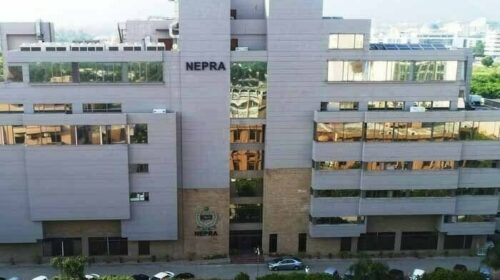National Electric Power Regulatory Authority (Nepra) is to protect interest of both net metering consumers, as well as, remaining non net metering 35 million consumers across the country.
Well informed sources in Nepra told Business Recorder that the number of net metering consumers at present is around 28,000. The excess units delivered by net metering consumers in the grid in August 2022 were around 4.2 GWhs which are expected to increase exponentially, keeping in view the fact that installed capacity for the Distributed Generators (DGs) has increased from less than 100 MW in FY 2019-20 to 500 to 750 MW to-date.
“Interest of net metering consumers is to be protected but at the same time, Nepra has to protect the interest of the remaining 35 million consumers, who do not have the net metering facilities,” sources added.
The power regulator maintains that it is a myth at different forums that Discos are the beneficiaries of the proposed amendment, adding that as a matter of fact, power purchase cost is pass-through for Discos; therefore, any reduction in buy back price of net metering units would mean reduction in the overall power purchase cost, thus directly benefiting all the consumers.
“If for a solar IPP, the tariff is determined at around Rs.9/kWh, would it be in the interest of the consumers to buy the same electricity from the net metering consumers at double price? How would Nepra justify these inconsistencies in its own decisions at various forums,” the sources further queried.
The existing mechanism provides netting-off of kWh supplied by a net metering consumer during peak hours against the kWh supplied by a Disco during peak hours and the kWh supplied by a net metering consumer during off peak hours against the kWh supplied by a Disco during off peak hours.
Discos had earlier requested Nepra that instead of net metering, the entire units exported by a Distributed Generator may be procured at Energy Purchase Price (EPP), but the proposal was not accepted by Nepra on the pretext that net metering is predominantly based on the concept of avoided cost. Therefore, as long as the mechanism of units being netted-off remains applicable, net metering regime would always be viable & tempting. With the applicable off-peak rates of Rs.28.07/kWh, the payback period for net metering consumers has reduced to around 4 years.
“Amendments in net metering policy should not only be for 28,000 net metering consumers but also the non-net metering 35 million consumers, who have already been paying the highest tariffs of Rs.28.07/kWh and Rs.34.39/kWh for off-peak and peak hours respectively, and would be further burdened with the impact of increased settlement price of these rich net-metering consumers,” said one of the consumers, who is purchasing power from IESCO. If the Authority approves its proposed amendment, it would be a win-win situation for both parties, the sources continued.
As per Nepra officials, no amendment has been made yet and Nepra has only solicited comments from the general public. Any decision in this regard would be taken after giving due consideration to the comments received form stakeholders and keeping in view the public interest.







